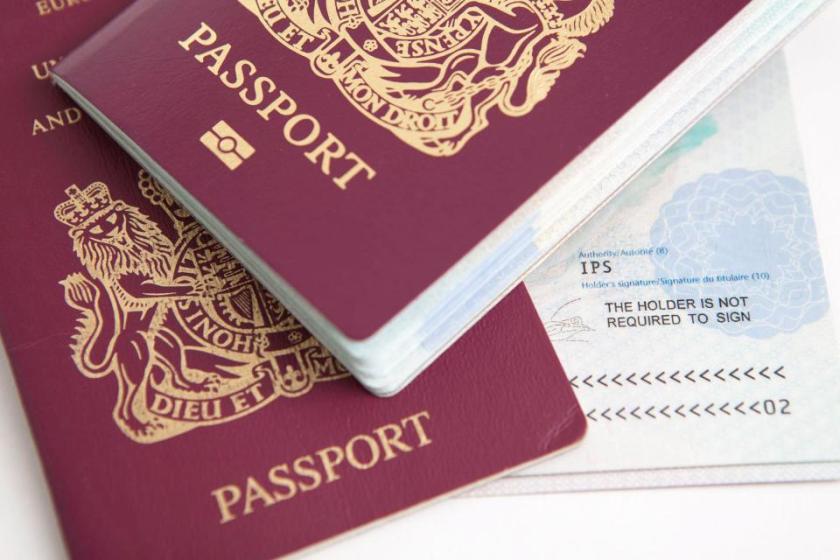The Special Immigration Appeals Commission (SIAC) has allowed the appeals of two men against the decisions of the Home Office to deprive them of their British citizenship on national security grounds.
The Commission, chaired by Mr Justice Jay, allowed the appeals of the two men, anonymised as E3 and N3, on the basis that the deprivation orders had rendered them stateless.
The full judgment in E3 and N3 v SSHD SC/138/2017 and SC/146/2017 can be read at http://siac.decisions.tribunals.gov.uk/Documents/outcomes/documents/DOC000.pdf
I represented the Appellants alongside Hugh Southey QC of Matrix Chambers and Alasdair Mackenzie of Doughty Street Chambers.
The Commission commented that the conduct of the legal team had “been in the very best tradition of the legal profession.”
Background
Both E3 and N3 are British by birth and have Bangladeshi parents.
In June 2017, E3 was deprived of his citizenship after visiting Bangladesh to be present at the birth of his second daughter.
In October 2017, N3 was deprived of his citizenship after leaving the UK to go to Turkey for business for a few weeks.
Both men were deprived of their citizenship on national security grounds days before they were due to return to the UK.
They suddenly found themselves stranded in foreign countries without any source of income, support or stable accommodation and vulnerable to detention and mistreatment.
The Issue
Although the underlying reasons for the deprivation orders were based on national security concerns, there was a preliminary issue that needed to be first decided.
Were the two men were Bangladeshi citizens on the dates upon which they had been deprived of their UK citizenship?
If they were not Bangladeshi citizens, then the Secretary of State could not deprive them of their citizenship as it would render them stateless, where they would essentially lose the right to have rights.
If they were actually dual nationals on the date of deprivation, then the case would proceed to consider the actual allegations made against them.
It is important to note that neither man was ever arrested in relation to any allegations of terrorism while they were in the UK.
The Commission heard expert evidence from both sides about the interpretation of Bangladeshi citizenship law.
Dr Ridwanul Hoque gave evidence on behalf of E3 and N3. Ms Nabeela Rafique was instructed by the Home Office.
The Commission ultimately preferred Dr Hoque’s evidence, finding that under Bangladeshi law, those who were born with dual British-Bangladeshi nationality only retained that status until the age of 21.
If before that point, they did not apply to retain their Bangladeshi citizenship, it would automatically lapse; to obtain it again, they would need to make a new application.
Bangladeshi citizenship law therefore required both men to have formally applied to retain their Bangladeshi citizenship upon reaching the age of 21, and by failing to do so, they had allowed their citizenship to lapse.
Since they did not possess Bangladeshi citizenship on the date of the British citizenship deprivation orders, the effect was to render them stateless.
As such, the decisions were unlawful and both appeals were allowed.
Implications
The implications of the judgment are significant:
-
The UK can no longer deprive UK nationals, who are British by birth but of Bangladeshi origin, of their citizenship where they are over the age of 21 and where they have never applied to retain their Bangladeshi citizenship. To do so would render them stateless and would be unlawful.
-
Citizens who fall within this category who have already had their citizenship revoked can appeal the decisions or reopen their cases on the basis that they have been rendered stateless.
While the decision of the Commission is to be welcomed, it remains of deep concern that there appears to be an ongoing practice of the Secretary of State to deliberately wait until individuals leave the UK before depriving them of their citizenship.
If the Secretary of State had evidence that either of these two men were involved in criminal activity, he should have passed that information to the police and the Crown Prosecution Service to put them on trial before they left the UK.
Instead, he deprived them of their citizenship on national security grounds during their absence.
The Secretary of State’s practice of depriving individuals of their citizenship while they are abroad without any form of due process is nothing less than a return to the medieval penalties of banishment and exile.
Visadreams.com, Diary of an Immigration Lawyer, is a blog run by Fahad Ansari, the director and principal solicitor of Riverway Law, a niche UK immigration and nationality law practice based in London. If you would like any advice or assistance in relation to your immigration matter, please do not hesitate to email me at fahad@riverwaylaw.com or submit your details here.


Very important Information. Thanks for sharing such a great information.
LikeLike